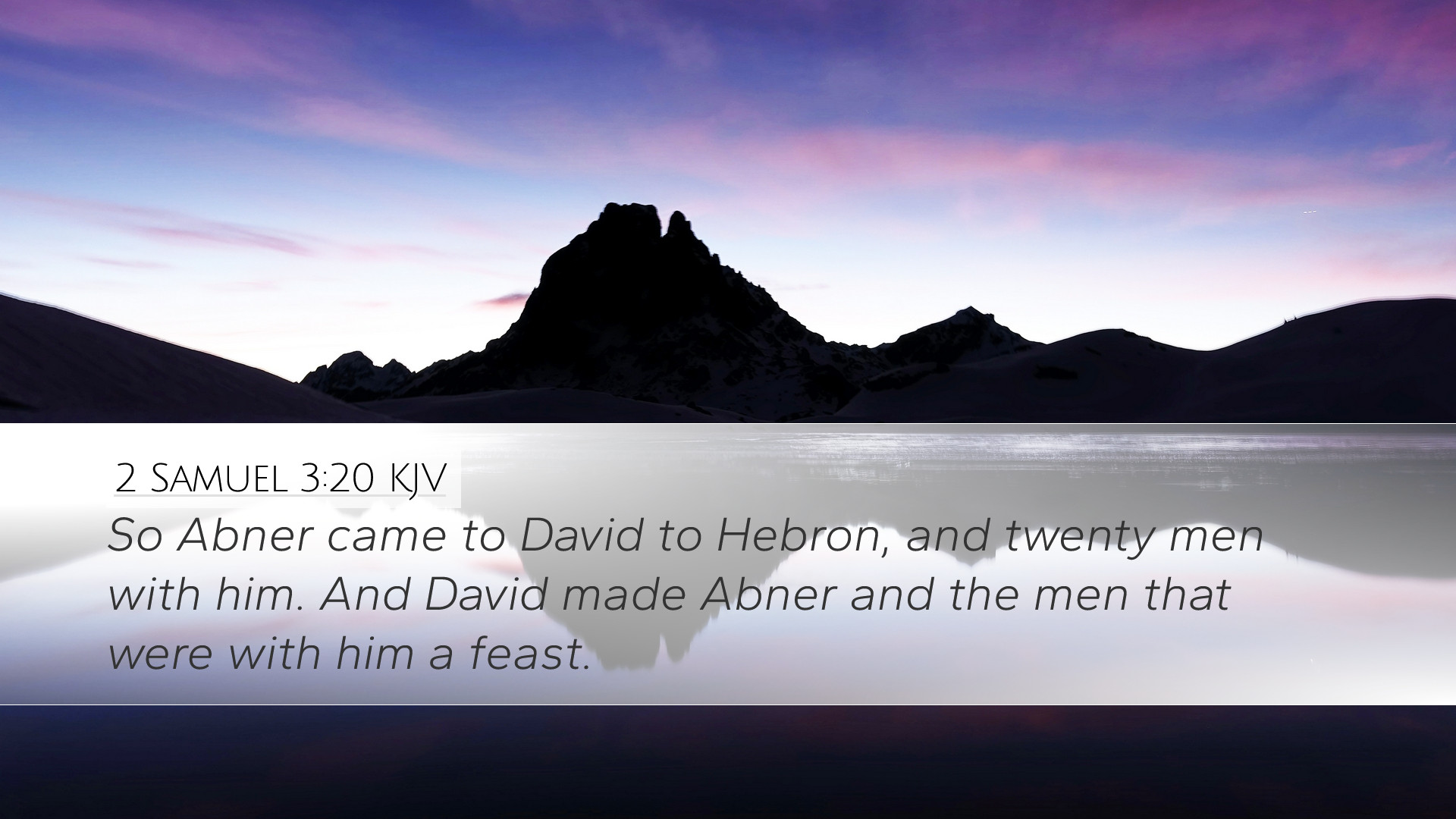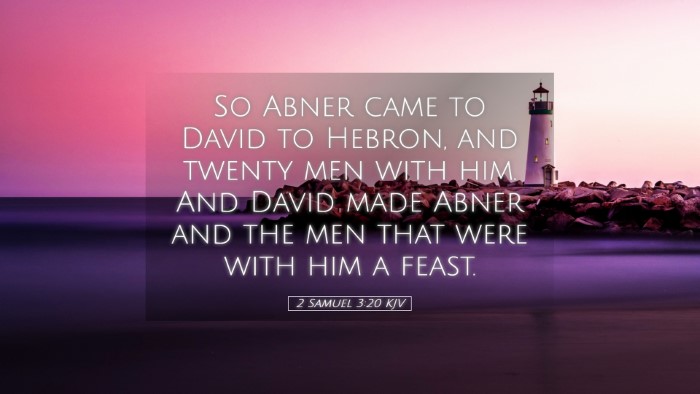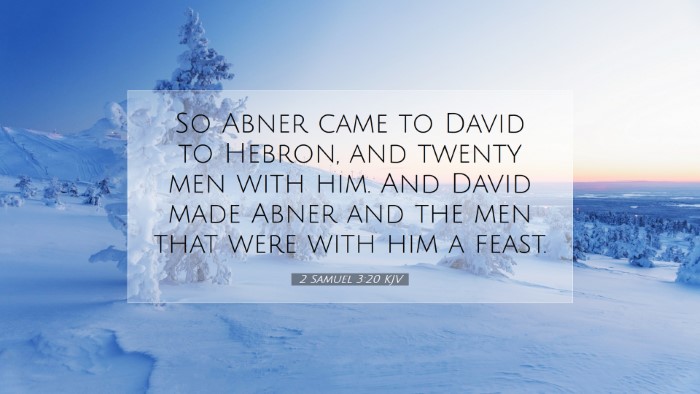Commentary on 2 Samuel 3:20
Bible Verse: "And when Abner came to David to Hebron, David made him a feast for him, and all the men that were with him." (2 Samuel 3:20, KJV)
Introduction
The passage of 2 Samuel 3:20 marks a significant moment in the narrative of David’s rise to power and the complex political landscape of Israel during the time of Abner and Ish-bosheth. In this commentary, insights from public domain sources such as Matthew Henry, Albert Barnes, and Adam Clarke will be synthesized to provide a comprehensive understanding of the implications of this verse.
Thematic Overview
- 1. The Role of Abner: Abner, being the commander of Saul's army, represents a crucial link between Saul's legacy and David's kingship.
- 2. David's Leadership: David’s actions in this verse reveal his diplomatic and political acumen.
- 3. The Significance of Feasting: The act of feasting signifies peace and unity, setting the stage for further cooperation.
Exegesis and Insights
According to Matthew Henry, Abner’s visit to David signifies a turning point. It is a gesture that indicates the potential for reconciliation between the factions of Israel. David's invitation to a feast is not merely a social event; it symbolizes David's openness to unity and establishing authority. This is crucial as the nation is divided over allegiance to Saul's house versus that of David.
Albert Barnes highlights the significance of "Hebron" as the designated city of David’s reign before taking Jerusalem. The choice of location for this meeting underscores David’s strategic mind—Hebron is a place that carries both historical and spiritual weight, being associated with Abraham and significant events in Israel's history.
Diplomatic Strategy
This encounter reflects David's understanding of the delicate political situation. Engaging Abner openly serves not only to solidify potential support from the northern tribes but also represents a shrewd political maneuver on David’s part. As observed by Adam Clarke, David's feasting with Abner could be seen as both a welcoming gesture and a calculated step toward reducing hostilities.
Symbolic Meaning of the Feast
The invitation for a feast may seem simple; however, in the cultural context of ancient Israel, sharing a meal symbolizes fellowship and trust. Henry notes that such an act serves to lower defenses and promote alliance, suggesting that David desired to envelop Abner's supporters into a new vision for the kingdom. The feast demonstrates the transformative power of hospitality as a means of fostering unity.
Character of David
Through the lens of the commentary, David’s character is further illuminated. He displays a remarkable capacity for forgiveness and forward-thinking leadership. As noted by Barnes, this act shows David's willingness to step beyond personal grievances and focus on the bigger picture of national integrity and unity.
Theological Reflections
From a theological standpoint, this verse can be viewed within the broader narrative of God’s sovereignty in human affairs. Barnes posits that divine providence is at play, as despite the chaos of civil strife, God uses David’s leadership to orchestrate a path toward unification among His people. This invites reflection on how God raises leaders who pursue peace amidst conflict.
Implications for Modern Readers
For pastors and theologians, the insights from this verse serve as a reminder of the power of hospitality and reconciliation in leadership within the Church. The act of inviting others to the table can break down barriers and foster community, mirroring David’s approach with Abner. The contrast of power dynamics shows the necessity for humility in leadership, an essential reflection for contemporary church governance.
Conclusion
In conclusion, 2 Samuel 3:20 is a richly layered verse that speaks volumes about leadership, reconciliation, and God’s overarching plan in the face of human conflict. The contributions from Henry, Barnes, and Clarke collectively underscore the relational dynamics at play and the profound implications of David's actions. It transcends its immediate historical context to offer timeless lessons for leaders and believers today, emphasizing the importance of unity, peace, and the act of coming together in fellowship.


